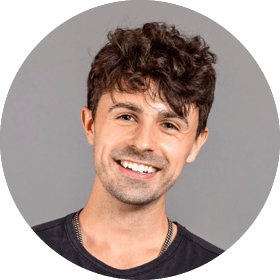
July 28th 2024

By Liam Bolling
In today's digital age, job scams have become increasingly prevalent, preying on unsuspecting job seekers eager to find employment. These scams can lead to financial losses, identity theft, and emotional distress. To protect yourself from falling victim to these fraudulent schemes, it's crucial to be aware of the warning signs and take proactive measures. In this comprehensive guide, we'll explore four key things to keep in mind when spotting a job scam and provide practical tips to help you navigate the job market safely.
1. Too Good to Be True Offers
One of the most telling signs of a job scam is an offer that seems too good to be true. Scammers often lure job seekers with promises of high salaries, flexible hours, and minimal requirements. If a job posting boasts an unusually high pay rate for little to no experience or qualifications, it's likely a scam. According to the Federal Trade Commission (FTC), the median reported loss from job scams in 2020 was $1,000.
Red flags to watch out for:
Guaranteed employment regardless of qualifications or experience
Vague job descriptions that lack specific details about the role and responsibilities
Unrealistic salaries or compensation packages
2. Requests for Personal Information or Payment
Legitimate employers will never ask for sensitive personal information or request payment during the initial stages of the hiring process. If a potential employer pressures you to provide your Social Security number, bank account details, or copies of identity documents before thoroughly verifying their legitimacy, it's a clear indication of a scam. Similarly, if they demand payment for processing fees, background checks, or training materials, it's a red flag.
To protect yourself:
Never share sensitive information until you've confirmed the employer's authenticity
Be cautious of employers who insist on communicating solely through email or instant messaging
Research the company thoroughly using official websites and reputable sources
3. Unprofessional Communication and Job Postings
Scammers often lack the professionalism and attention to detail that legitimate employers exhibit. Pay close attention to the language and formatting used in job postings and email communications. Poor grammar, spelling errors, and excessive use of exclamation marks are common indicators of a potential scam. Additionally, be wary of generic or vague company names and email addresses from free email providers like Gmail or Yahoo.
Signs to be cautious of:
Poorly written job descriptions with numerous errors and inconsistencies
Email communications that lack a professional tone and company branding
Job postings that emphasize the benefits more than the actual job responsibilities
4. Pressure Tactics and Unusual Requests
Scammers often employ high-pressure tactics to rush job seekers into making decisions without proper consideration. They may insist on immediate action, claiming that the opportunity is time-sensitive or that there are numerous applicants vying for the position. Be cautious of employers who request unusual actions, such as depositing checks, transferring funds, or purchasing equipment before starting the job.
To avoid falling victim to these tactics:
Take your time to thoroughly research and verify any job opportunity
Be skeptical of employers who pressure you to make quick decisions
Trust your instincts; if something feels off or too good to be true, it probably is
While being vigilant is essential, constantly worrying about potential scams can be stressful. CareSquad AI offers a solution to ease your mind and keep you safe while job searching online. This browser extension acts as a virtual cybersecurity expert, analyzing suspicious emails, messages, and advertisements to determine the likelihood of a scam. By alerting you to potential threats and providing guidance on next steps, CareSquad AI gives you peace of mind and allows you to focus on finding legitimate employment opportunities.
In conclusion, spotting and avoiding job scams requires a combination of awareness, caution, and proactive measures. By keeping these four key points in mind and utilizing tools like CareSquad AI, you can navigate the job market with confidence and protect yourself from falling victim to fraudulent schemes. Remember, if an opportunity seems too good to be true, it probably is. Trust your instincts, do your research, and never hesitate to seek guidance from reputable sources.











